SOCRATES FOUNDING POLITICAL PHILOSOPHY IN XENOPHONS ECONOMIST , SYMPOSIUM , AND APOLOGY
The University of Chicago Press, Chicago 60637
The University of Chicago Press, Ltd., London
2020 by The University of Chicago
All rights reserved. No part of this book may be used or reproduced in any manner whatsoever without written permission, except in the case of brief quotations in critical articles and reviews. For more information, contact the University of Chicago Press, 1427 E. 60th St., Chicago, IL 60637.
Published 2020
Printed in the United States of America
29 28 27 26 25 24 23 22 21 20 1 2 3 4 5
ISBN -13: 978-0-226-64247-5 (cloth)
ISBN -13: 978-0-226-64250-5 (e-book)
DOI : https://doi.org/10.7208/chicago/9780226642505.001.0001
Library of Congress Cataloging-in-Publication Data
Names: Pangle, Thomas L., author
Title: Socrates founding political philosophy in Xenophons Economist, Symposium, and Apology / Thomas L. Pangle.
Description: Chicago : University of Chicago Press, 2020. | Includes bibliographical references and index.
Identifiers: LCCN 2019037138 | ISBN 9780226642475 (cloth) | ISBN 9780226642505 (e-book)
Subjects: LCSH : SocratesPolitical and social views. | Xenophon. Oeconomicus. | Xenophon. Symposium. | Xenophon. Apology.
Classification: LCC B 317. P 334 2020 | DDC 183/.2dc23
LC record available at https://lccn.loc.gov/2019037138

This paper meets the requirements of ANSI/NISO Z 39.48-1992 (Permanence of Paper).
Cicero informs us that prior to Socrates, philosophic science dealt with number and motion, and that from which all things originate and into which they return; and studied the size, distance between, and course of stars and of all celestial things. But as regards civic life, the pre-Socratic philosophers tended to look down upon it, as dominated by deluded religious beliefs and moral conventions lacking foundation in nature (see esp. Plato, Laws 888e890b). Rational study of politics was largely appropriated by so-called sophists, who employed the critical and constructive tools of philosophic science to discover and to teach, for pay, the power of exploitative-manipulative public rhetoric. Opposed to the sophists was Socrates (writes Cicero) who with subtle argumentation made it his practice to refute their teachings. Socrates was the first to call philosophy down from heaven and to set it in cities and to introduce it into the household and to compel it to inquire into life and mores and good and bad things. Out of the wealth of his discourses there emerged most learned men; and it was then, it is said, that there was discovered the philosophy that was not the natural philosophy that had been earlier, but the philosophy in which there is disputation over good and bad things and the life and mores of men.
In these characterizations, Cicero follows above all the eyewitness presentation of Socrates by Xenophon. Cicero may have had primarily in mind a famous passage in Xenophons Memorabilia (1.1.1116). Yet this utterly fails to do justice to the extraordinary contrasts among the four works, in terms of both style and substance. In fact, study of Xenophons shorter Socratic writings reveals that the Memorabilia is in major respects radically incompletethat it is intended by Xenophon to be not only supplemented, but even in some measure corrected, by the three oft-designated lesser Socratic writings.
The most obvious limitation of, or constraint upon, the Memorabilia is that the work is overwhelmingly defensivein purpose, message, and tone. The opening sections are devoted to refuting the charges, of impiety and of corrupting the young, upon which Socrates was convicted and executed; then this refutation is made the foundation for the erection, in the bulk of the work, of a monument to the active justice of Socrates, demonstrating that he was not merely innocent of wrongdoing toward his fellow men, but that he was, in every affair, and in every way, beneficial; so that it is manifest, to anyone who investigates and perceives with measure, that there was nothing more beneficial than being together and spending ones time with Socrates (Memorabilia 4.1.1; see also 1.3.1). In almost the last statement that the Memorabilia quotes from Socrates he is reported declaring that his life as a whole has been the noblest preparation for a defense speech, inasmuch as he has spent it doing no other thing except thoroughly investigating the just things and the unjust, and doing the just things and refraining from the unjust (ibid. 4.8.4). And Xenophon presents Socrates as repeatedly proclaiming that by the just he means above all the legal, or obedience to the laws, unwritten as well as written (ibid. 4.4 and 4.6.56). To demonstrate that Socrates lived in accordance with unwritten as well as written lawful custom (nomos), Xenophon highlights throughout the Memorabilia all the ways in which Socrates through his virtuesnot only of justice, but of piety and self-control and moderation and prudenceresembled conventionally respectable gentlemen (kaloi kagathoi: literally, the noble-and-good).
In contrast, the three shorter Socratic writings of Xenophon, led by the Economist, make more vivid how Socrates, in his virtues, or in his peculiar version of gentlemanliness, and in his conception of scientific household management or economics, diverges from normal gentlemen: from their virtues, from their nobility-and-goodness, and from their ideas of sound household management and governmental rule over fellow human beings. In the shorter Socratic writings, both Xenophon and his Socrates are somewhat less guarded, less reticent, more forthcoming than in the Memorabilia. The Economist makes us part of the privileged audience for an amazing autobiographical report by Socrates; the Symposium lets us be flies on the wall at a private drinking party in which gradual inebriation loosens the tongues of all present, including Socrates; the Apology of Socrates to the Jury gives us access to the inner deliberation by which Socrates arrived at his decision to give the astonishingly arrogant defense speech that he offered at his trial.
Put another way: the Memorabilia, for its part, is the most perfect document we possess articulating that central thesis of classical political philosophy that was best formulated in modern times by Shaftesbury, the great early-modern student of Xenophon:
Tis not Wit merely, but a Temper which must form the Well-bred Man. In the same manner, tis not a Head merely, but a Heart and Resolution which must compleat the real Philosopher. Both Characters aim at what is excellent, aspire to a just Taste, and carry in view the Model of what is beautiful and becoming. Accordingly, the respective Conduct and distinct Manners of each Party are regulated; The one according to the perfectest Ease, and good Entertainment of Company; the other according to the strictest Interest of Mankind and Society: The one according to a Mans Rank and Quality in his private Nation; the other according to his Rank and Dignity in Nature.
Whether each of these Offices, or social Parts, are in themselves as convenient as becoming, is the great Question which must some-way be decided. (Shaftesbury 2001, Miscellany 3, chap. 1 end)
This last, pregnant comment adumbrates the great Question that becomes unmistakably the theme in Xenophons three Socratic writings other than the

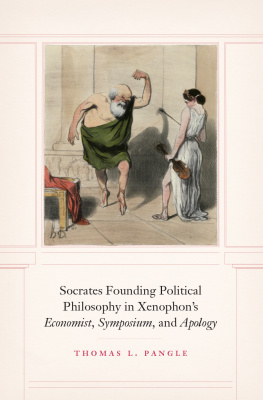



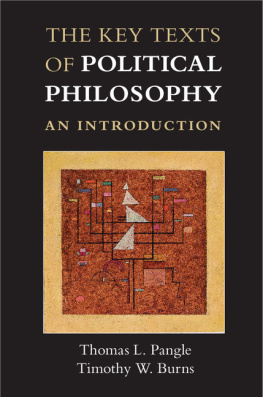

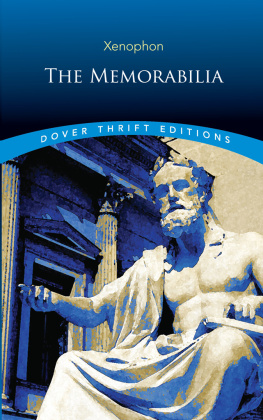
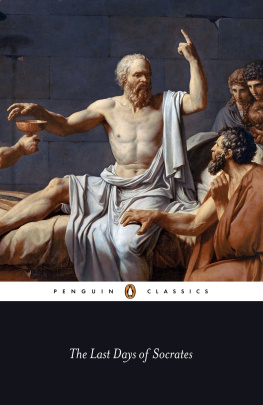

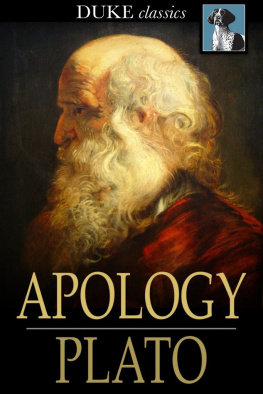
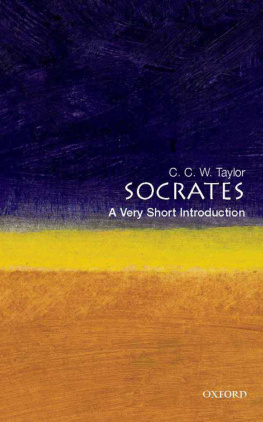
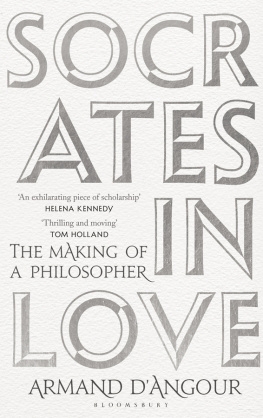
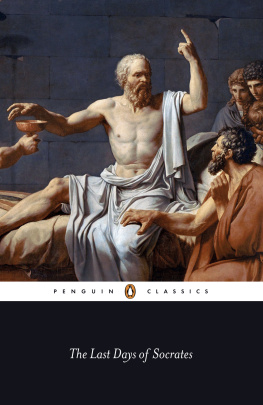
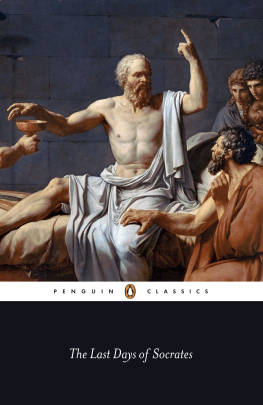
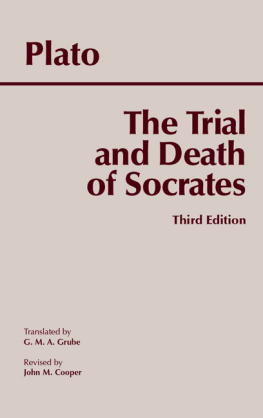
 This paper meets the requirements of ANSI/NISO Z 39.48-1992 (Permanence of Paper).
This paper meets the requirements of ANSI/NISO Z 39.48-1992 (Permanence of Paper).